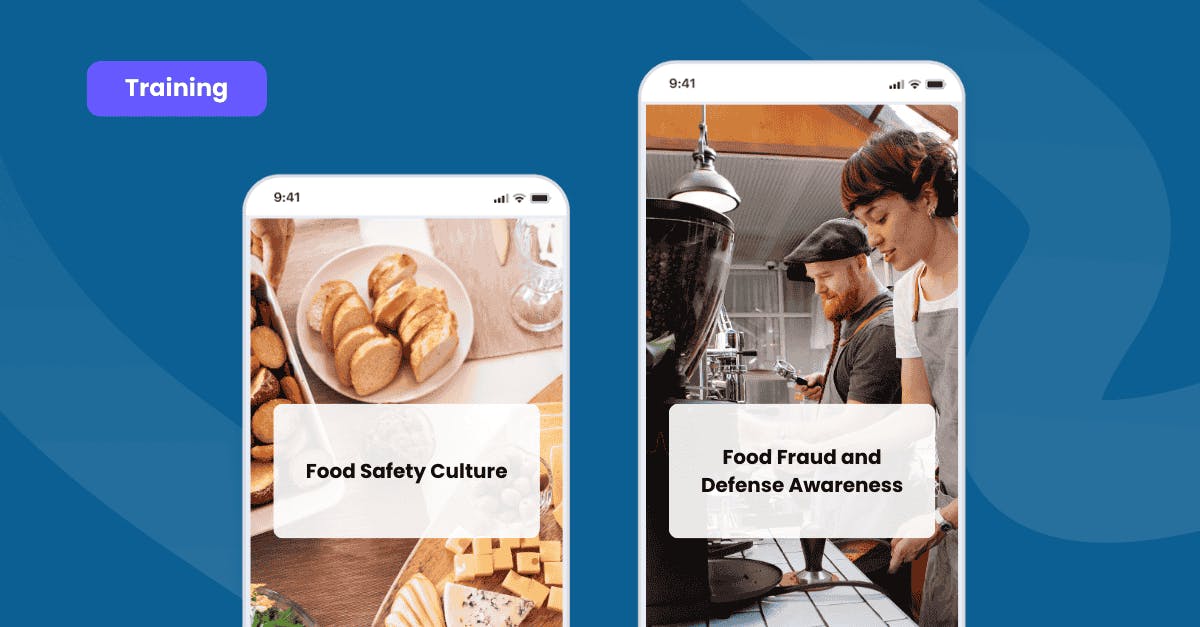Food safety training for employees: All you need to know
Whether working in a restaurant or serving guests in a hotel, food safety is important for the health and safety of employees and customers. Keeping food safe not only prevents illnesses but also builds trust and confidence.
Create an environment where everyone can enjoy their meals without worry. Explore this guide on food safety training for employees, featuring its benefits, tips, and best practices to guarantee that every bite is as safe as it is delicious.
What is food safety training?
Food safety training equips employees with the skills and knowledge needed to safely handle, prepare, store, and serve food to prevent all sorts of foodborne illnesses and contamination.
It covers every stage of the food journey—from cultivation to storage, all the way through preparation, establishing safety at each critical step before reaching the customer’s table.
Some of the most essential food industry training topics include:
- Personal hygiene and handwashing techniques
- Foodborne illnesses
- Temperature control
- Proper food storage and handling
- Cross-contamination
- Food allergens
- Cleaning and sanitizing
- Food safety regulations
Who must undergo food safety training?
Every employee involved in transporting, handling, preparing, serving, and storing food must undergo food safety training. These include food service workers such as chefs, cooks, and other kitchen staff. These also involve servers, waitstaff, and bartenders.
Those in leadership positions, such as restaurant managers and catering supervisors, should also deeply understand food safety practices. Drivers and couriers who handle food also require basic food safety training to guarantee safe and compliant deliveries.
For food businesses, industry regulations also vary depending on location. In the US, some of the most common ones include the Food Safety Modernization Act (FSMA) and the Hazard Analysis Critical Control Point (HACCP). Always consult your local government authorities for the most current and accurate information.
Why is food safety training for employees important?
According to the World Health Organization, 600 million people fall ill due to contaminated food each year. In the US, more than half of these illnesses come from restaurants or delis. This only goes to show that food safety training for employees isn’t merely a box to tick—it's essential for saving lives.
Beyond preventing foodborne pathogens like bacteria, viruses, and parasites from causing serious illnesses to your customers, employee food safety training is important because of these reasons:
- It builds consumer trust.
- It instills a sense of responsibility among employees.
- It reduces liability and financial risk.
- It assures consistency and quality.
- It minimizes food spoilage and waste.
- It equips teams with crisis management skills.
How to develop effective food safety training for employees
Guarantee that your teams get the most out of food safety training with this list of tips and best practices.
Conduct a food risk analysis
The first step in planning training is to identify what you need to achieve from training. This means checking what gaps need to be addressed and what strengths to build on. This also means aligning individual objectives to the goals of the entire business.
For food safety, finding these gaps is done by conducting a safety analysis. A food safety analysis involves the following steps:
- Identifying physical, biological, and chemical hazards
- Assessing potential risk areas
- Implementing preventive measures
- Establishing critical control points to identify where contamination risk is highest
- Maintaining documentation for accountability and compliance
Deliver training in multiple languages
Restaurants and hotel chains have locations across the globe with teams of diverse backgrounds. Make sure that training remains accessible by translating materials into the languages spoken by your team.
If you’re using a learning and development software like SC Training (formerly EdApp), making training accessible has never been easier. SC Training supports over 100+ languages and instantly translates lessons into your preferred language with AI Translation. This means that you don’t have to go through the tedious process of translating lessons on your own or breaking the bank by hiring a translator.
Combine digital and in-person training
Use digital training to make training work around your hospitality team’s busy schedule. Complement it with in-person training for that hands-on, face-to-face instruction that lets teams learn in the kitchen and while on duty.
SC Training houses the perfect balance of the accessibility of digital lessons with mobile-first learning and the impact of in-person sessions with Practical Assessments. Use these features to train whenever and wherever while managers have access to a digital checklist that helps them confirm if the knowledge they learn from virtual lessons is being applied in the real world.
Get employees certified
Encouraging your employees to get certified in food safety is a win-win for their professional growth and for the business. Food safety training and certification improves job performance while opening up opportunities for career advancements. It also guarantees consistency in service quality, legal and industry compliance, and improved efficiency.
SC Training’s course library houses multiple lessons for hospitality teams. Enroll your employees and award them with a food safety certificate online upon completing the course.
Implement ongoing, regular training sessions
Training should never be a one-and-done thing, especially when it concerns the lives and safety of your customers. Continuous learning is necessary to reinforce lessons and keep teams updated on industry best practices and regulations.
Make training a habit with SC Training’s Brain Boost. This spaced repetition tool will help instill key learnings on important topics such as food safety culture and food fraud and defense awareness.
Create safer, healthier meals with food safety training for employees
There’s no room for error when it comes to your customers' health and safety. Let them know that their safety is always your top priority by investing in only the best food safety training for employees.
Check out these SC Training courses that can help you guarantee safer meals for your customers:
Food Safety Culture
Develop your teams’ understanding of food safety culture with this comprehensive course. It will help them recognize the important elements and implement the best practices to foster a proactive food safety culture.
Food Fraud and Defense Awareness
Take a deep dive into food fraud and defense strategies with this SC Training course. It’ll help your teams protect the integrity of food supply chains and explore the definition and impact of food fraud and food sabotage. This course also explores the best practices for enhancing defense awareness and preventing fraudulent practices in the food industry.
SC Training brings many information-packed courses to the table. From policies and regulations to food and beverage training, we’ve got you covered. Deliver safer dining experiences backed by top-tier training that guarantees quality at every step.
Serve up safety and excellence—get certified in food safety with SC Training. Sign up today!
Author
Bea Garcia
Bea Garcia is a content specialist at SC Training, a cutting-edge e-learning platform commited to delivering experiences that empower frontline teams. She specializes in creating tailored content for the hospitality, retail, and SaaS industries, offering training solutions that address the unique challenges of each sector. Beyond writing, she spends her time trying out recipes and watching films.

